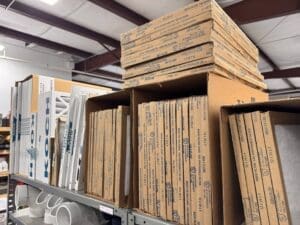 When selecting the most suitable air filter for your HVAC system, it’s vital to consider the MERV rating, which represents the “minimum efficiency reporting value.” This rating indicates how effectively a filter can eliminate particles from the air as it passes through. The higher the MERV rating, the more particles the filter can capture.
When selecting the most suitable air filter for your HVAC system, it’s vital to consider the MERV rating, which represents the “minimum efficiency reporting value.” This rating indicates how effectively a filter can eliminate particles from the air as it passes through. The higher the MERV rating, the more particles the filter can capture.
While some may assume that a larger MERV rating equates to better performance, it’s crucial to adhere to the manufacturer’s recommendations for your furnace or air conditioner. Overstepping the suggested MERV rating can actually hinder the system’s efficiency. Filters with higher MERV ratings have finer gaps, leading to increased air resistance. If such a filter is used in an HVAC system not designed to handle this resistance, it may result in reduced efficiency, compromised indoor air quality, and added strain on the system’s fan.
For residential homes, air filters within the MERV 5-8 range are commonly used. These filters effectively capture various contaminants such as pollen, dust mites, sanding dust, textile and carpet fibers, mold spores, dust lint, and cement dust, targeting particles ranging from 3.0 to 10.0 microns in size.
To effectively filter out contagious airborne particles, organizations are advised by ASHRAE to opt for a MERV-13 filter or an even higher level of filtration if possible, with MERV-14 being preferred. While increasing the MERV rating enhances filtration capabilities, it’s important to be mindful that this can impact the overall performance of your HVAC system.
